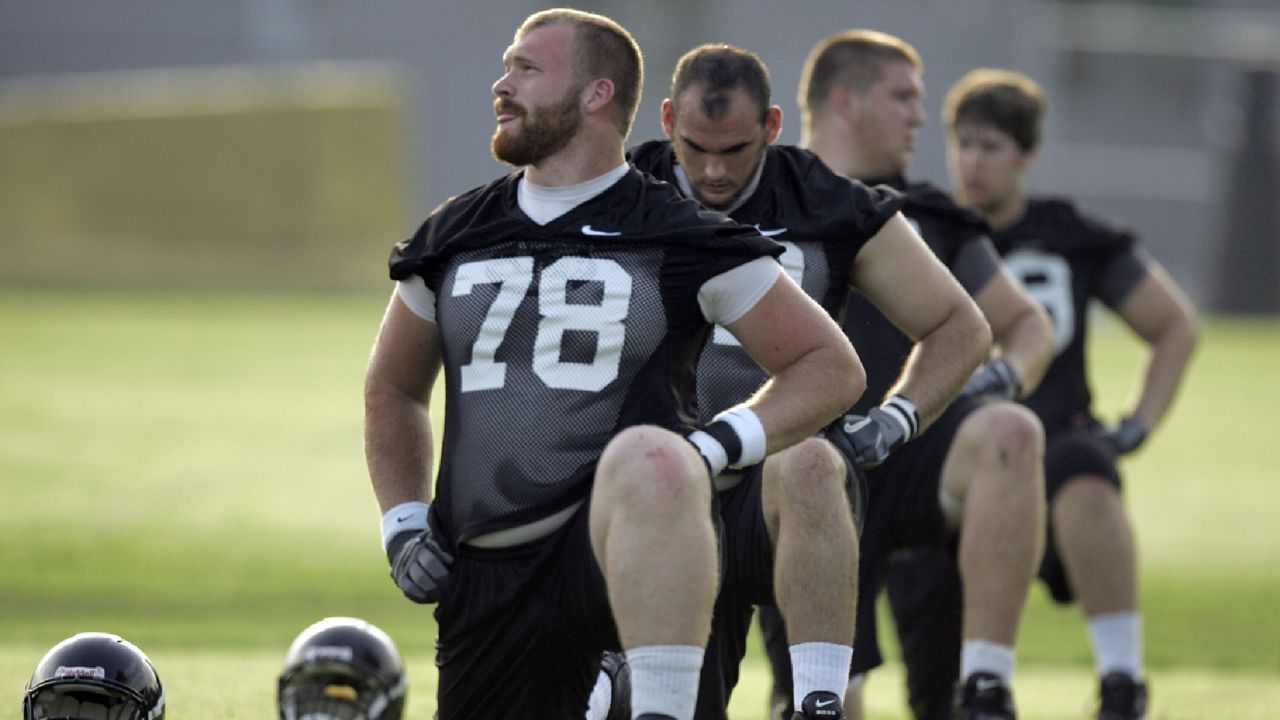JEFFERSON CITY, Mo.—Kurtis Gregory knows a lot about fields.
Gregory, finishing his first term as a Missouri State Representative, played four seasons at the University of Missouri as an offensive guard for Gary Pinkel's Tigers from 2005-2009, where he helped plow passing lanes for the high-octane Chase Daniel-Jeremy Maclin-Chase Coffman offenses of the time.
In addition to politics, where he represents Saline, Johnson and Pettis counties in the General Assembly, Gregory's post-playing career has been occupied with farming corn and soybeans on 1,100 acres in Marshall, Mo.
The just-completed legislative session was a source of frustration for lawmakers this year, as battles over congressional redistricting, parental rights in the classroom and the status of transgender athletes dominated debate and at times shut down much of anything else in the Senate. Gregory had his own frustrations on the farm, as wet weekends made for poor planting conditions.
But something started to feel furtive on the legislative front, and it happened as a resolution he sponsored honoring his former college head coach crossed the finish line in late April. A University of Missouri lobbyist asked if Gregory had heard about a "Name, Image, Likeness" (NIL) bill that had just passed in Tennessee. NIL has been legal in college sports for less than a year but laws governing the concept in each state generally have made it so school personnel had little to do with it.
Under the new Tennessee law, "an institution's involvement in support of name, image, or likeness activities does not constitute compensation to or representation of an intercollegiate athlete by the institution for purposes of this part so long as the institution does not coerce, compel, or interfere with an intercollegiate athlete's decision to earn compensation from or obtain representation in connection with a specific name, image, or likeness opportunity."
With other states starting to take action, Gregory saw what was happening. The legal playing field wasn't going to be level, which meant that the actual playing field wouldn't be either. That's when he started drafting legislation that essentially allowed school personnel to help student-athletes get NIL deals.
Fast forward two weeks to the last few days of the session. The budget is done, the congressional map is still in limbo and Gregory hasn't filed his legislation yet. After nine drafts, Gregory has an amendment ready to get to the floor of the House and Senate. But there's a problem. After all those soggy weekends, the forecast for planting on his farm looked great all week. But he still had to plant his bill.
He spent time going back and forth to Marshall, working the field and working the Capitol. Majority Leader Dean Plocher told him Wednesday would be the day. Only it wasn't.
On Thursday, it was attached to the first bill moved in the House and it passed.
But, just like dozens of other bills, it faced an uncertain fate later that day in the Senate where the redistricting debate had for months been the source of angst among members.
The NIL amendment was part of a larger higher education bill authored by State Sen. Barbara Anne Washington, intended to highlight Historically Black Colleges and Universities in the state. But there was a significant roadblock. State Sen. Mike Moon, who has championed legislation to limit high school girls sports to participation to those who were born female, added that language to the HBCU bill.
Moon fought for the transgender sports amendment, against fellow Republicans who said they supported the idea, but didn't want to kill a fellow member's bill. By this time, Gregory had left his desk in the House to watch the action firsthand in the Senate. Moon's amendment failed 16-11.
Washington's bill, with Gregory's amendment, passed, and awaits Gov. Mike Parson's signature. It was one of the last bills to pass the Senate before the chamber passed the redistricting map and adjourned for the session one day early.
By the end of the session, with his legislation planted on the Governor's desk, Gregory had good news at home in the field, as neighbors helped him successfully plant his crops successfully planted. Now all that's left is to see where both plantings go from here.



